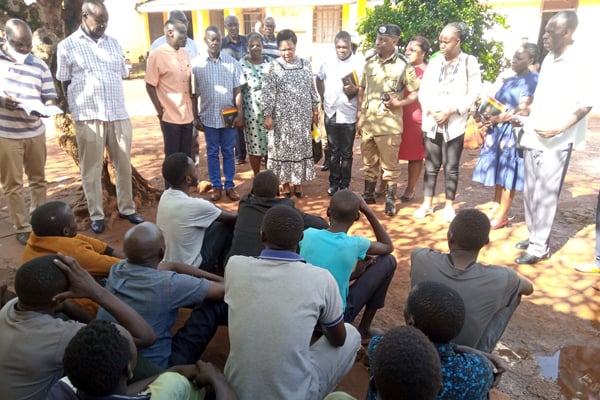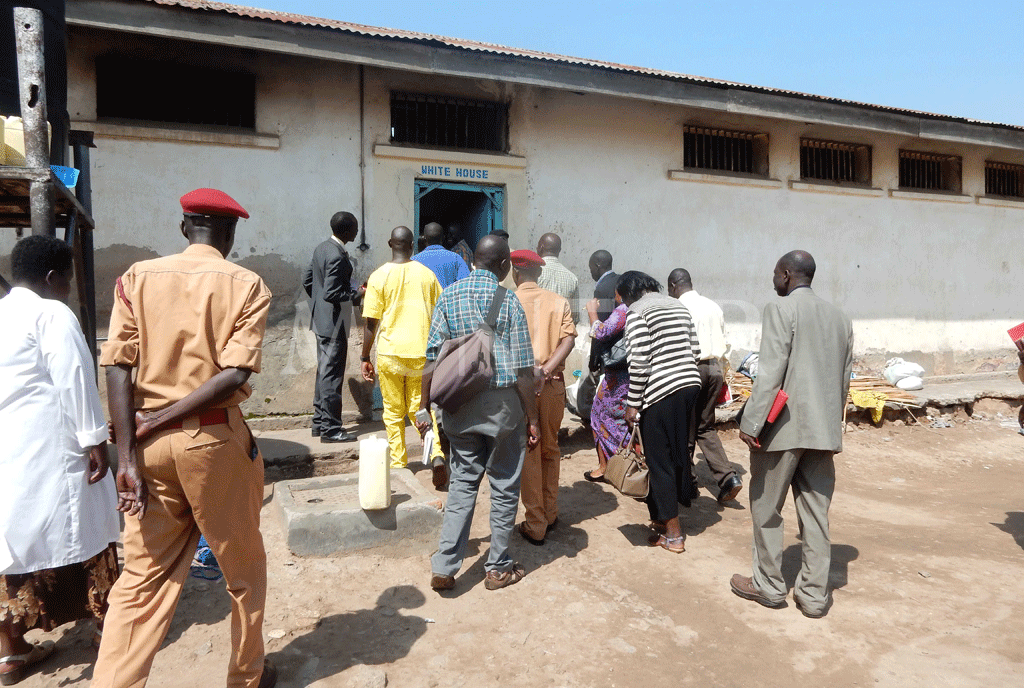Prisoners with HIV demand balanced diet

Inmates at Lira Central Prison. PHOTO/ FILE
Tom Richard Enon, an inmate on remand at Lira Central Prison, who was charged with aggravated defilement, was enrolled on HIV/Aids treatment in 2005.
Enon, a resident of Kole District, is among 235 people living with HIV/Aids at the overcrowded prison.
Just like other inmates, Enon gets three meals a day: porridge for breakfast, beans and posho for both lunch and dinner. However, this diet never changes.
Only prisoners with money can access silver fish, fresh fish, chicken and meat.
“Here at the prison, I take my ARV (antiretroviral) medication every day but at times when I must take a good diet like chicken, I have no access to it,” Enon told the Parliamentary Committee on HIV/Aids at the weekend.
The committee was in Lango Sub-region to assess the conditions under which inmates with HIV live.
Enon added: “ARVs are available and whenever I pick the medication, it can last three months but diet is a problem. Look at how I am undernourished! Out there, I was shining and had put on a lot of weight because there is a balanced diet.”
Enon appealed to the government to provide the inmates with at least silver fish and eggs to boost their immune system.
Congestion
This publication learnt that Lira Main Prison was constructed in 1934 with the capacity of less than 50 inmates. However, currently, the detention facility is home to 970 inmates, which means three prisoners are occupying a space designated for only one person.
The team leader of the committee on HIV/Aids, Ms Harriet Businge, called for calm among the inmates.
“This is just a temporary situation. So, we request that you keep calm because we know you are here for a short time,” she said. “We know that HIV is everywhere. It is in offices, it is even there in Parliament and even in Cabinet. We should not feel shy to say we’re sick,” Ms Businge said.
The officer-in-charge of Lira Prisons, Superintendent of Prisons, Peter Nuwagaba, said 288 have been taken to Oyam and Erute prisons to decongest the facility.
On the issue of balanced diet, he said they have started growing vegetables as part of an intervention to provide a balanced diet to their inmates.
He also said people are allowed to bring food to their incarcerated relatives in prison, on specific visitation days, adding that charity organisations, including churches, are also allowed to support the inmates
Mr Hillary Okello, the Lira City HIV/Aids focal person, said the Lira Prison Health Centre III cannot offer efficient services because of inadequate personnel and infrastructure.
“It’s a single block with two rooms. There are moments you reach when the inmates are sick, we opt for Lira Regional Referral Hospital,” he said.
Poor health facility
Sgt Wilfred Obar, the officer-in-charge of Lira Police Health Centre II, told MPs that the health facility, which serves a population of 31,909 people, is incapacitated.
“We are unable to extend HIV services to all police officers since the facility is not accredited. For instance, staff from Kampala were transferred to Lira but we failed to handle them,” he said.
The health facility is also grappling with the knowledge gap in comprehensive HIV/Aids care, lack of support, inadequate diagnostic equipment, lack of trained counsellors, and the communication gap between the facility and the referral point of care.
“Like for instance, if a person has tested positive and he is referred to Lira Regional Referral Hospital, we fail to get feedback whether such a person has reached or not,” Mr Opar said.




